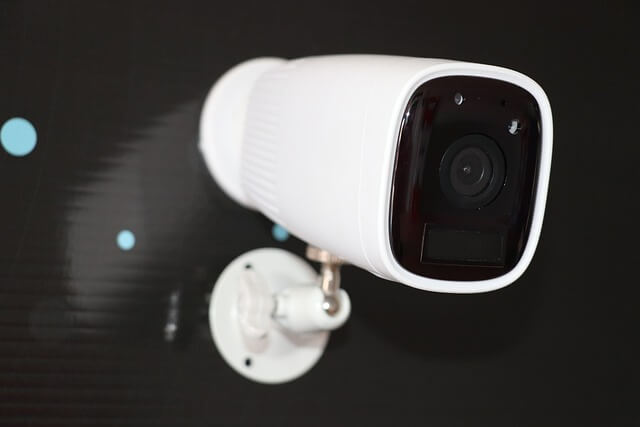Security Camera Installation

Introduction to Security Camera Installation Services
Security camera installation services focus on enhancing safety and providing peace of mind for homeowners, businesses, and property managers. From selecting the right camera system to ensuring seamless installation and operation, this trade requires a combination of technical skill and attention to detail. Here’s what to know:
- Versatility: Security camera installers handle tasks like mounting cameras, running and concealing cables, setting up wireless systems, and integrating cameras with smart home platforms or security networks.
- DIY or Professional: Whether starting as a tech-savvy DIY enthusiast or building a professional installation business, this field offers opportunities to serve residential, commercial, and industrial clients.
- Essential Tools: A well-equipped toolkit is critical. Commonly used tools include power drills, cable testers, fish tape, crimping tools, and network configuration software for IP cameras.
- Customization: Each project is unique, requiring installers to adapt to various camera types (e.g., wired, wireless, dome, or bullet cameras) and different environments, such as indoor, outdoor, or high-security areas.
Whether you’re new to the trade or looking to expand your services, security camera installation provides the chance to specialize in a growing field while helping clients protect what matters most.
Can you make money as a Security Camera Installer?
Yes, security camera installation can be a profitable and rewarding career or side business. The growing demand for surveillance systems across residential, commercial, and industrial sectors offers numerous opportunities for skilled installers to generate income. Here’s how you can make money in this field:
1. Residential Installations
Homeowners increasingly prioritize security, creating steady demand for surveillance system installations. Offering tailored packages for single-family homes, including wireless systems or smart home integration, can help you attract clients and build a loyal customer base.
2. Commercial and Industrial Projects
Businesses often require advanced setups with multiple cameras, central monitoring systems, and high-security integrations. These larger contracts bring higher profits, especially when you provide ongoing support or maintenance services.
3. Maintenance and Upgrades
Clients often need assistance with troubleshooting, updating old systems, or expanding their camera networks. Providing repair and maintenance services can create a recurring revenue stream.
4. Consulting and Design Services
If you have expertise in system design, you can charge for consultations to help clients select the right equipment, layout, and installation strategies for their specific needs.
5. Smart Home Integrations
With the rise of smart home technology, integrating cameras with systems like Amazon Alexa, Google Nest, or Ring opens opportunities for additional revenue. You can charge premium rates for advanced configuration services.
6. DIY Installation Support
Not every client wants full installation services. Offering guidance, tutorials, or remote support for DIY enthusiasts can be another way to monetize your skills.
How Much Can You Earn?
Earnings vary based on factors such as location, client type, and job complexity. Security camera installers typically charge:
-
Per Camera: $100–$300 for basic setups, more for advanced systems.
-
Hourly: $50–$150 per hour, depending on expertise and market demand.
-
Project-Based: $500–$5,000+ for larger, commercial-scale installations.
Keys to Success
-
Skill Development: Stay updated on new camera technologies and installation techniques.
-
Marketing: Build an online presence, advertise locally, and leverage client reviews to attract new business.
-
Customer Service: Reliable and professional service encourages repeat clients and referrals.
With the right skills and business strategy, security camera installation can become a lucrative venture in a rapidly growing market.
How much would it cost for a starting Security Camera Installation toolset? (Summary)
Setting up a basic toolset for security camera installation typically costs $300–$800, depending on the quality and type of tools you choose. Here’s a breakdown:
- Basic Hand Tools: Screwdrivers, pliers, wrenches, and a utility knife (~$50–$100).
- Power Tools: Cordless drill with drill bits (~$100–$200).
- Cable Tools: Wire strippers, crimpers, and a fish tape for cable routing (~$50–$150).
- Testing Equipment: Cable tester and voltage meter (~$50–$100).
- Specialized Tools: Ladder, stud finder, and IP camera configuration software (~$100–$250).
Optional higher-end tools, such as professional-grade cable testers or advanced networking devices, may raise the cost, but this investment can improve efficiency and expand your capabilities.
Essential Tools for a typical Security Camera Installer
Safety Tools for Security Camera Installers?
Are there services that can help me find work as a Security Camera Installer?
Yes, there are several services and platforms that can help you find work as a security camera installer. These range from online marketplaces to industry-specific networks and local advertising strategies. Here’s a breakdown:
1. Online Job Platforms
-
TaskRabbit: Allows you to list your skills, including security camera installation, for local clients seeking help with home projects.
-
Thumbtack: A platform where professionals can connect with clients looking for installation services.
-
Angi (formerly Angie’s List): Lets you advertise your services to homeowners searching for trusted local contractors.
-
Houzz Pro: Ideal for those targeting residential and commercial customers looking for home improvement professionals.
-
Upwork/Fiverr: For offering remote consultation services, such as system design or troubleshooting.
2. Local Lead-Generation Services
-
HomeAdvisor: Matches you with homeowners needing installation services.
-
Porch: Partners with retailers like Lowe’s, allowing you to be listed as a local service provider.
-
Nextdoor: A neighborhood-focused platform where you can advertise your services and connect with local clients.
3. Industry-Specific Networks
-
Alarm.com Installer Network: If you specialize in integrated security systems, joining their network can generate leads.
-
ADT Authorized Dealer Program: A partnership opportunity for professional installers working with ADT systems.
-
CEDIA (Custom Electronic Design & Installation Association): Connects you with industry professionals and training to grow your network.
4. Local and Social Advertising
-
Google My Business: Optimize your profile so local clients can find you easily through Google search or Maps.
-
Facebook Marketplace and Groups: Promote your services in community groups or via Facebook ads.
-
Craigslist: List your services in the “Skilled Trade Services” section for your area.
-
LinkedIn: Use your professional profile to connect with businesses needing security system installations.
5. Subcontracting Opportunities
-
Electrical Contractors: Partner with local electricians who may refer clients needing camera installations.
-
Security Companies: Work as a subcontractor for firms offering broader security services.
-
IT Service Providers: Collaborate with IT firms that may need help with physical hardware installation.
6. Direct Outreach
-
Property Managers and Realtors: Offer services to residential communities, apartment complexes, and real estate agents.
-
Small Business Owners: Many small businesses seek affordable security solutions; reaching out directly can lead to new clients.
7. Licensing and Certification Agencies
Some jurisdictions require licensing for security installations. Joining licensing bodies or taking certification courses (e.g., ESA certifications) can open doors to exclusive job boards or referrals.
By leveraging these services and strategies, you can increase visibility and secure more opportunities in the growing field of security camera installation.
Frequently Asked Questions (FAQ)
1. Do I need any certifications or licenses to install security cameras?
The requirements depend on your location. Some states or countries require a low-voltage electrician license or a security system installer certification. Research local laws to ensure compliance.
2. How much can I charge for security camera installation?
Rates vary based on project complexity:
- Per Camera: $100–$300.
- Hourly Rate: $50–$150.
- Project-Based: $500–$5,000+ for larger setups.
3. What tools do I need to start as a security camera installer?
A basic toolset includes:
- Power drill and hammer drill.
- Ethernet crimper and cable testers.
- Fish tape or wire pull system.
- Safety equipment like gloves, goggles, and a ladder.
4. Can I specialize in wireless camera installations?
Yes, wireless systems are becoming popular due to ease of installation. Specializing in these systems, including smart home integrations, can set you apart in the market.
5. What types of clients need security camera installations?
Common clients include:
- Homeowners looking to secure their property.
- Small businesses and retail stores.
- Commercial properties requiring large-scale systems.
- Industrial facilities with high-security needs.
6. How long does it take to install a security camera system?
For a simple residential setup (2–4 cameras), it typically takes 2–4 hours. Larger systems with complex wiring can take a full day or more.
7. Can I offer remote support or consultation services?
Yes, you can provide virtual consultations for camera placement, system design, or troubleshooting, especially for DIY clients.
8. How can I find clients for my security camera installation business?
Use platforms like TaskRabbit, Thumbtack, Angi, and Google My Business. Networking with property managers, security companies, and IT providers can also help.
9. Is it better to focus on residential or commercial installations?
It depends on your skills and goals:
- Residential: Easier projects, shorter timelines, smaller budgets.
- Commercial: More complex projects with higher earning potential.
10. What should I do if I encounter technical issues during installation?
- Use troubleshooting tools like cable testers and network analyzers.
- Consult user manuals and manufacturer support.
- Keep contact with experienced professionals or forums for advice.
11. Do I need insurance for a security camera installation business?
Yes, liability insurance protects you in case of accidental damage or injury during a job. It’s highly recommended.
12. How can I improve my skills as a security camera installer?
- Take courses on low-voltage systems, networking, or smart home technology.
- Stay updated on the latest camera systems and tools.
- Practice installation techniques in various settings.
Ad Notice:
ToolFinder is a site as a free service. We do not charge a fee, and so we have ads on our site to help support development cost and basic time input.
We may also have links on our site to others for products - known as affiliate links - you will Not pay more by utilizing these links, but the merchant would provide ToolFinder a fee for the referral. As an Amazon Associate I earn from qualifying purchases.

